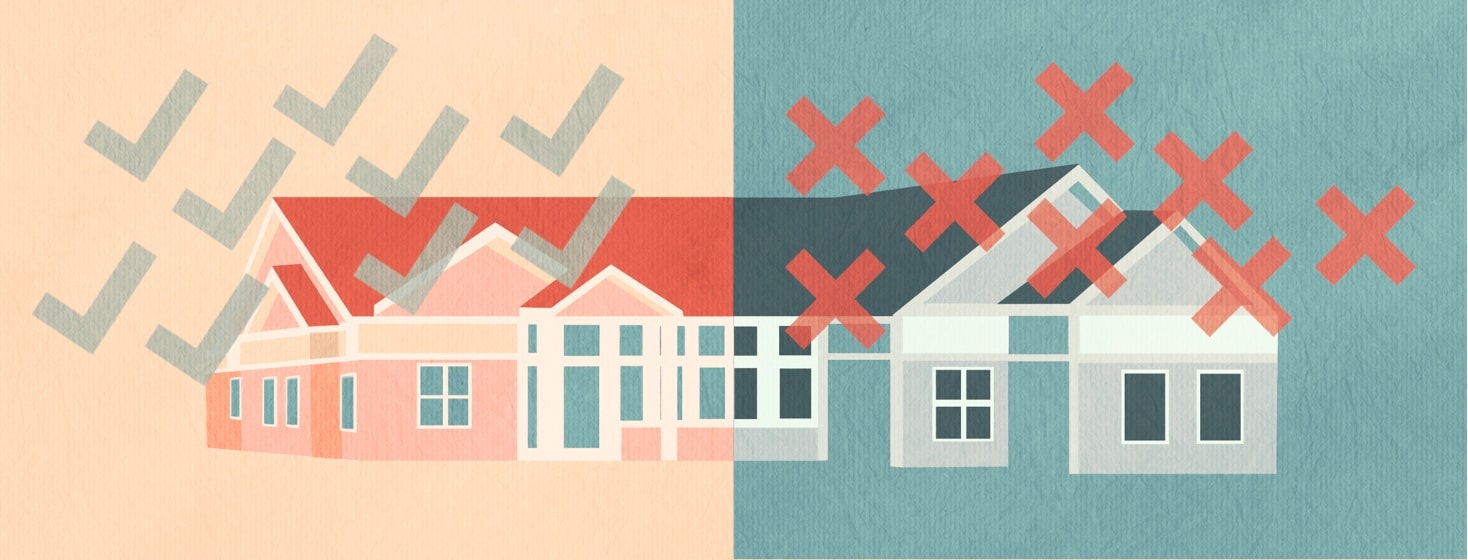Pros & Cons of Memory Care Homes
I don’t know about you, but I never thought I’d have a loved one who would need to move to a nursing home or what we now call memory care homes. Unfortunately, it is the reality for some people who are diagnosed with Alzheimer’s or other similar conditions.
When the care needed at home can no longer be provided, decisions must be made. How do we determine whether a nursing home or a memory care home (MCH) is the best option? We likely have to sit down and make a list of the pros and cons. And trust me when I say, it is one of the most difficult things you will entertain, let alone make a decision, to do.
Pros of memory care homes
- They can provide a safe environment for someone living with Alzheimer's.
- They can provide a secure environment. The doors are locked so your loved one cannot wander off.
- Your loved one will receive progressive care for changes expected as Alzheimer’s moves forward.
- They will receive opportunities to socialize every day, even when you might believe they don’t understand any longer.
- They offer a healthy food menu most often developed by a registered dietitian. Very often, the menu is posted for family and friends to see what is being served and when.
- They promote self-care for as long as possible. If Dad can still wash his hands, he will be supported to do so.
- They provide much-needed relief for the caregiver.
- They ensure the person’s body stays as healthy as possible while the mind declines. Some MCHs are designed in a circle, allowing the person to walk as much as they like without getting lost. Alternatively, they offer stimulation to the person in the form of exercise, such as Zumba classes. (Yes, Zumba!) You can even go with them and partake.
- They offer a variety of therapies to help your loved one remain in touch. The one that comes to mind is animal therapy, visits by dogs to the MCH.
- There are regulations that must be adhered to.
- There are private and public MCHs available depending on what the family can afford.
- The staff treat your loved one like they are their family. They would refer to a person by their name.
- There is often a family doctor associated with the MCH. Health care is very accessible.
- Many are staffed by healthcare professionals. They are staffed by RNs, PSWs, PTs, RDs.
- Many are designed like the outside community, like a village. Your loved one lives in their home, in a village with a name.
Cons of memory care homes
- Not all MCHs are well run. Some cut corners even though you are paying a lot of money. Not all are well-staffed, leaving your loved one open to falls and other accidents that could be life-threatening.
- The doors are locked, and you feel like you have jailed your loved one instead of keeping them safe.
- You will have to deal with the mental anguish involved in sending your loved one ‘away’. What if he gets poor care, or someone hurts him, or his belongings go missing? It's also difficult to live with the permanence of your loved one being gone when they are still alive.
- The potential for isolation as the person’s needs become greater.
- In some MCHs, there may be no registered dietitian to address individual dietary needs, especially as the disease advances.
- Not all MCHs are up to a good standard of care. Due to a lack of staffing, the worker may skip self-care activities, leaving the person to decline further and possibly more quickly.
- Moving to an MCH means your loved one has some new or different caregivers on every shift looking after them.
- Not all have services to continue to keep people engaged socially or physically.
- Some very basic therapies would be available, but are they all effective?
- Even with regulation, not all adhere to the regulations as they are so infrequently checked. Both private and public ones can be less than adequate. A thorough investigation needs to be conducted before your loved one is moved to their new home.
- Some are so expensive, they are exclusive. There is a cost associated with everything beyond the basic fees, which may not make them available for all.
- Some would not be so caring as to treat your loved one as family or call the person by name, rather, ‘the one in room 10’. Not all workers in all MCHs are well paid, so going the extra mile may not lead to a commitment to the residents; rather, ‘it’s just a job’.
- Some do not have doctors attached to them, which means families are expected to get their loved one out of the facility to get medical treatment. If there is a family doctor associated with the MCH, it may mean surrendering the trusted primary care physician (PCP) who knows the person best.
- Some do not have professional services attached to them. That can be traumatic for the person and the family as Alzheimer's advances and special supportsare needed.
- Some MCHs are designed more like hospital beds in a room. The person is often wandering without supervision and that added stimulation may create behavioural issues that go undealt with.
So, as you can see, there are many things that are positive about MCH living. Maybe this list of pros and cons will allow you to decide what is best for your loved one. It may also prompt you to ask some questions and look for certain things when considering the move.
If a move must occur, you want to make the best decision you can.

Join the conversation